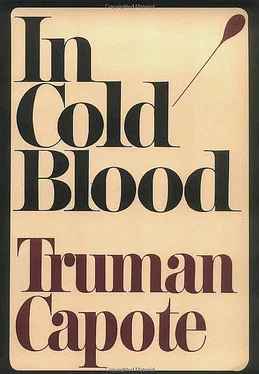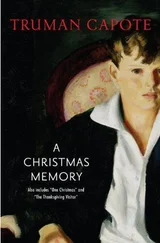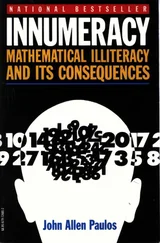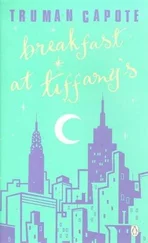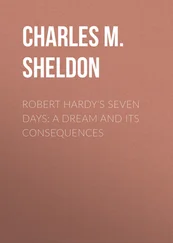“Yes. I like you.”
Cullivan’s softly emphatic answer pleased and rather flustered Perry. He smiled and said, “Then you must be some kind of nut. “Suddenly rising, he crossed the cell and picked up a broom. “I don’t know why I should die among strangers. Let a bunch of prairiebillys stand around and watch me strangle. Shit. I ought to kill myself first.” He lifted the broom and pressed the bristles against the light bulb that burned in the ceiling. “Just unscrew the bulb and smash it and cut my wrists. That’s what I ought to do. While you’re still here. Somebody who cares about me a little bit.”
The trial resumed on Monday morning at ten o’clock. Ninety minutes later the court adjourned, the case for the defense having been completed in that brief time. The defendants declined to testify in their own behalf, and therefore the question of whether Hickock or Smith had been the actual executioner of the Clutter family did not arise.
Of the five witnesses who did appear, the first was the hollow-eyed Mr. Hickock. Though he spoke with a dignified and mournful clarity, he had but one contribution to make that was relevant to a claim of temporary insanity. His son, he said, had suffered head injuries in a car accident in July, 1950. Prior to the accident, Dick had been a “happy-go-lucky boy,” had done well in school, been popular with his classmates and considerate of his parents—“No trouble to anybody.”
Harrison Smith, gently guiding the witness, said, “I will ask you if, after July, 1950, you observed any change in the personality and habits and actions of your son, Richard?”
“He just didn’t act like the same boy.”
“What were the changes you observed?”
Mr. Hickock, between pensive hesitations, listed several: Dick was sulky and restless, he ran around with older men, drank and gambled. “He just wasn’t the same boy.”
The last assertion was promptly challenged by Logan Green, who undertook the cross-examination. “Mr. Hickock, you say you never had any trouble with your son until after 1950?”
“…I think he got arrested in 1949.”
A citric smile bent Green’s tiny lips. “Remember what he was arrested for?”
“He was accused of breaking into a drugstore.”
“Accused? Didn’t he admit that he broke into the store?”
“That’s right, he did.”
“And that was in 1949. Yet now you tell us your son had a change in his attitude and conduct after 1950?”
“I would say so, yes.”
“You mean that after 1950 he became a good boy?”
Hard coughs agitated the old man; he spat into a handkerchief. “No,” he said, studying the discharge. “I wouldn’t say that.”
“Then what was the change that took place?”
“Well, that would be pretty hard to explain. He just didn’t act like the same boy.”
“You mean he lost his criminal tendencies?”
The lawyer’s sally induced guffaws, a courtroom flare-up that Judge Tate’s dour gaze soon extinguished. Mr. Hickock, presently set free, was replaced on the stand by Dr. W. Mitchell Jones.
Dr. Jones identified himself to the court as a “physician specializing in the field of psychiatry,” and in support of his qualifications, added that he had attended perhaps fifteen hundred patients since 1956, the year he had entered a psychiatric residency at Topeka State Hospital in Topeka, Kansas. For the past two years he had served on the staff of Larned State Hospital, where he was in charge of the Dillon Building, a section reserved for the criminally insane.
Harrison Smith asked the witness, “Approximately how many murderers have you dealt with?”
“About twenty-five.”
“Doctor, I would like to ask you if you know my client, Richard Eugene Hickock?”
“I do.”
“Have you had occasion to examine him professionally?”
“Yes, sir … I made a psychiatric evaluation of Mr., Hickock.”
“Based upon your examination, do you have an opinion as to whether or not Richard Eugene Hickock knew right from wrong at the time of the commission of the crime?”
The witness, a stout man of twenty-eight with a moon-shaped but intelligent, subtly delicate face, took a deep breath, as though to equip himself for a prolonged reply—which the judge then cautioned him he must not make: “You may answer the question yes or no, Doctor. Limit your answer to yes or no.”
“Yes.”
“And what is your opinion?”
“I think that within the usual definitions Mr. Hickock did know right from wrong.”
Confined as he was by the M’Naghten Rule (“the usual definitions”), a formula quite color-blind to any gradations between black and white, Dr. Jones was impotent to answer otherwise. But of course the response was a letdown for Hickock’s attorney, who hopelessly asked, “Can you qualify that answer?”
It was hopeless because though Dr. Jones agreed to elaborate, the prosecution was entitled to object—and did, citing the fact that Kansas law allowed nothing more than a yes or no reply to the pertinent question. The objection was upheld, and the witness dismissed. However, had Dr. Jones been allowed to speak further, here is what he would have testified: “Richard Hickock is above average in intelligence, grasps new ideas easily and has a wide fund of information. He is alert to what is happening around him, and he shows no sign of mental confusion or disorientation. His thinking is well organized and logical and he seems to be in good contact with reality. Although I did not find the usual signs of organic brain damage—memory loss, concrete concept formation, intellectual deterioration—this cannot be completely ruled out. He had a serious head injury with concussion and several hours of unconsciousness in 1950—this was verified by me by checking hospital records. He says he has had blackout spells, periods of amnesia, and headaches ever since that time, and a major portion of his antisocial behavior has occurred since that time. He has never had the medical tests which would definitely prove or disprove the existence of residual brain damage. Definitive medical tests are indicated before a complete evaluation can be said to exist… Hickock does show signs of emotional abnormality. That he knew what he was doing and still went ahead with it is possibly the most clear-cut demonstration of this fact. He is a person who is impulsive in action, likely to do things without thought of consequences or future discomfort to himself or to others. He does not seem to be capable of learning from experience, and he shows an unusual pattern of intermittent periods of productive activity followed by patently irresponsible actions. He cannot tolerate feelings of frustration as a more normal person can, and he is poorly able to rid himself of those feelings except through antisocial activity… His self-esteem is very low, and he secretly feels inferior to others and sexually inadequate. These feelings seem to be overcompensated for by dreams of being rich and powerful, a tendency to brag about his exploits, spending sprees when he has money, and dissatisfaction with only the normal slow advancement he could expect from his job… He is uncomfortable in his relationships to other people, and has a pathological inability to form and hold enduring personal attachments. Although he professes usual moral standards he seems obviously uninfluenced by them in his actions. In summary, he shows fairly typical characteristics of what would psychiatrically be called a severe character disorder. It is important that steps be taken to rule out the possibility of organic brain damage, since, if present, it might have substantially influenced his behavior during the past several years and at the time of the crime.”
Aside from a formal plea to the jury, which would not take place until the morrow, the psychiatrist’s testimony terminated Hickock’s planned defense. Next it was the turn of Arthur Fleming, Smith’s elderly counselor. He presented four witnesses: the Reverend James E. Post, the Protestant chaplain at Kansas State Penitentiary; Perry’s Indian friend, Joe James, who after all had arrived by bus that morning, having traveled a day and two nights from his wilderness home in the Far Northwest; Donald Cullivan; and, once again, Dr. Jones. Except for the latter, these men were offered as “character witnesses”—persons expected to attribute to the accused a few human virtues. They did not fare very well, though each of them negotiated some skimpily favorable remark before the protesting prosecution, which contended that personal comments of this nature were “incompetent, irrelevant, immaterial,” hushed and banished them. For example, Joe James, dark-haired, even darker-skinned than Perry, a lithe figure who with his faded huntsman’s shirt and moccasined feet looked as though he had that instant mysteriously emerged from woodland shadows, told the court that the defendant had lived with him off and on for over two years. “Perry was a likable kid, well liked around the neighborhood—he never done one thing out of the way to my knowledge.” The state stopped him there; and stopped Cullivan, too, when he said, “During the time I knew him in the Army, Perry was a very likable fellow.”
Читать дальше
